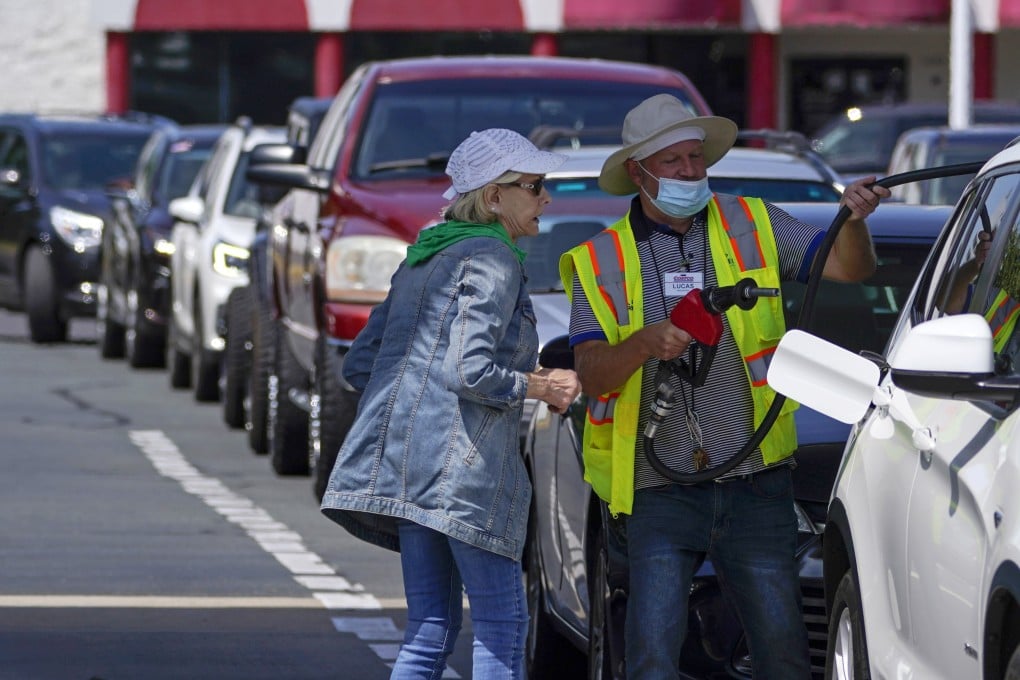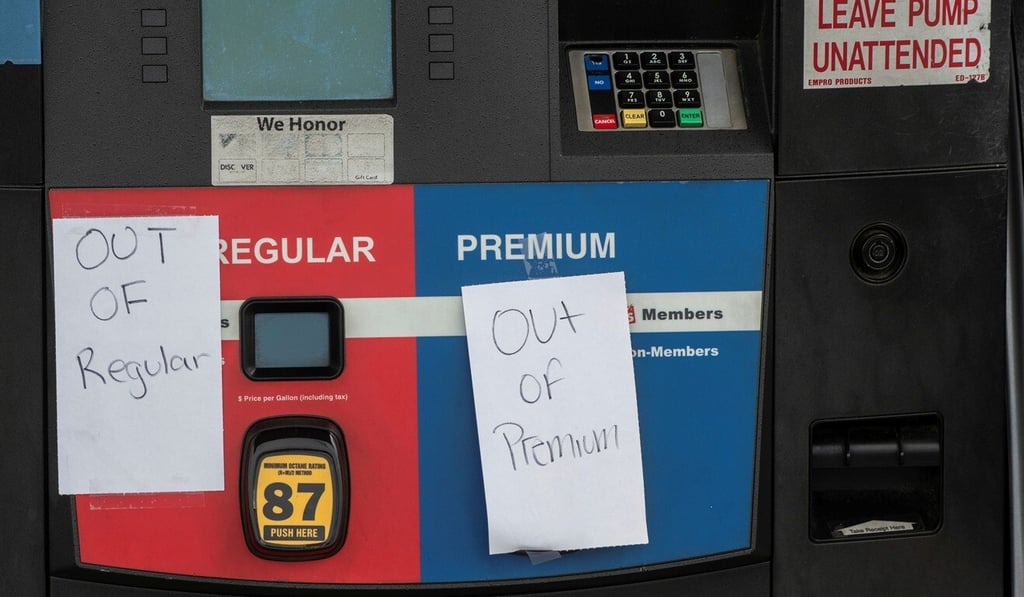Panic buying in US as petrol pumps run dry after Colonial Pipeline hack
- Prices rise at petrol stations, with Biden administration urging motorists not to hoard
- Authorities say the pipeline restart in a few days, after it was shut down by a ransomware attack

Petrol stations from Florida to Virginia began running dry and prices at the pump rose on Tuesday, as the shutdown of the biggest US fuel pipeline by hackers extended into a fifth day and sparked panic buying by motorists.
“We are asking people not to hoard,” US Energy Secretary Jennifer Granholm told reporters at the White House. “Things will be back to normal soon.”
Colonial was shut on Friday after hackers launched a ransomware attack – effectively locking up its computer systems and demanding payment to release them.

The company said it is making progress and hopes to restart a substantial portion of operations by week’s end. The company said it has taken delivery of an additional 2 million barrels from refineries for deployment upon restart.